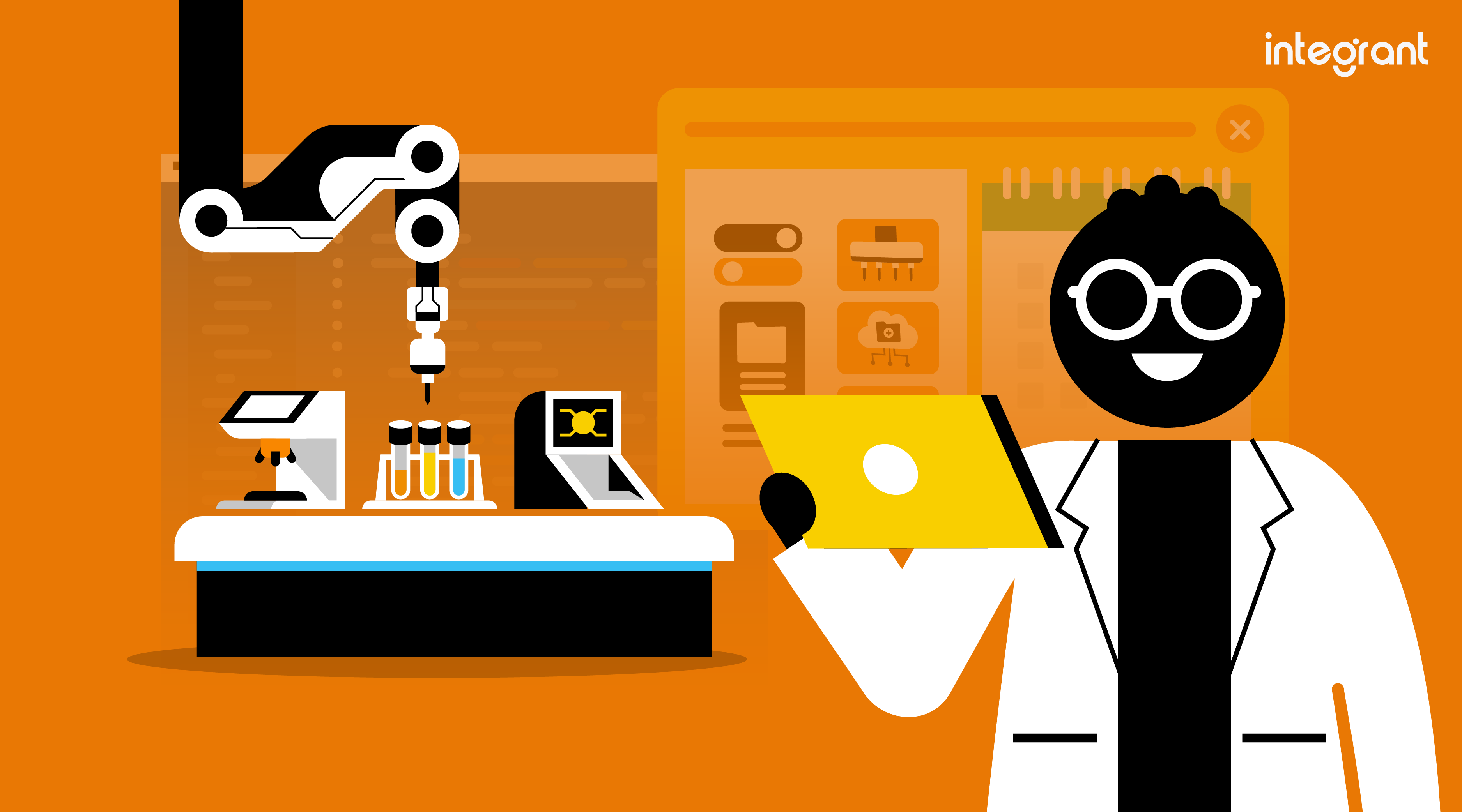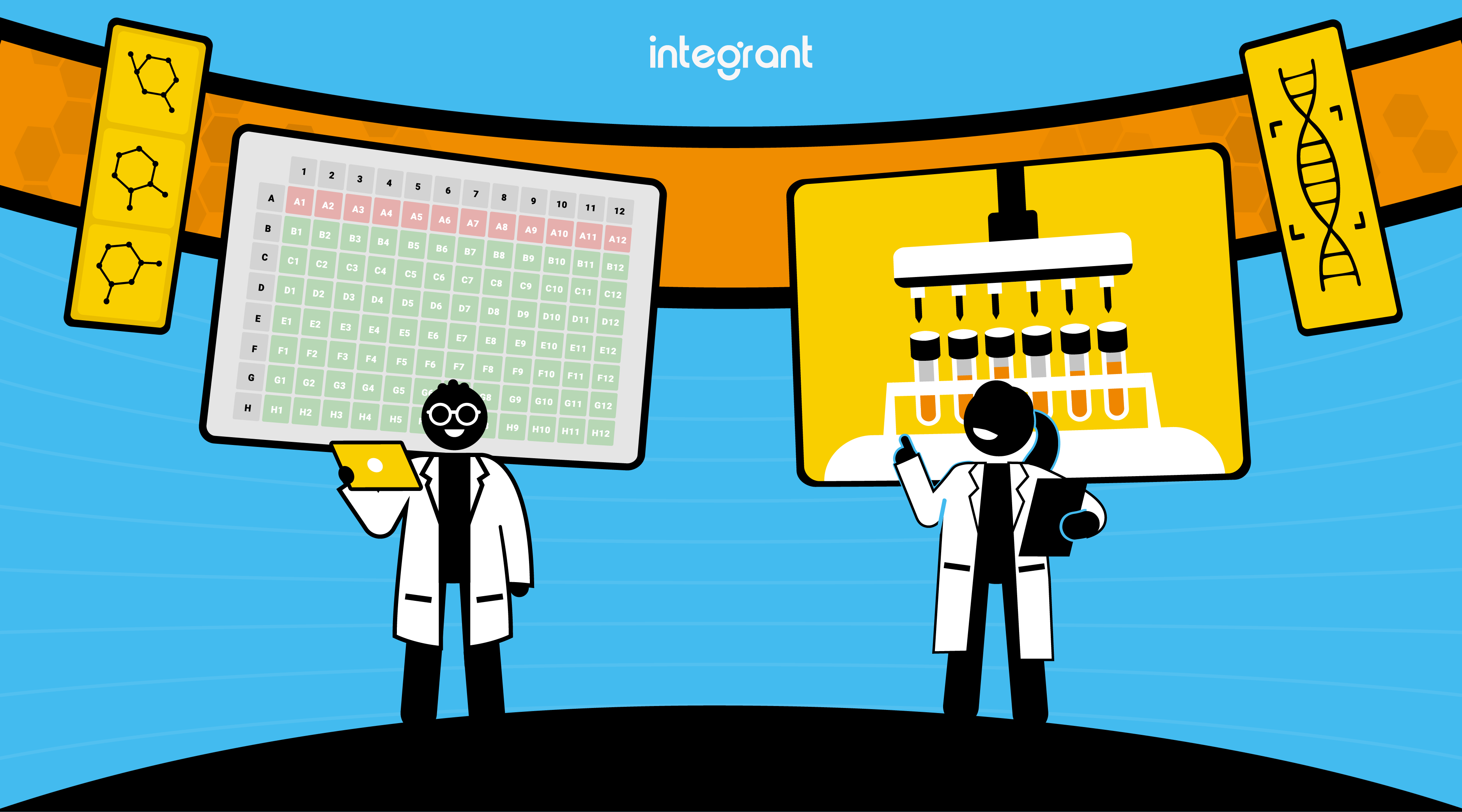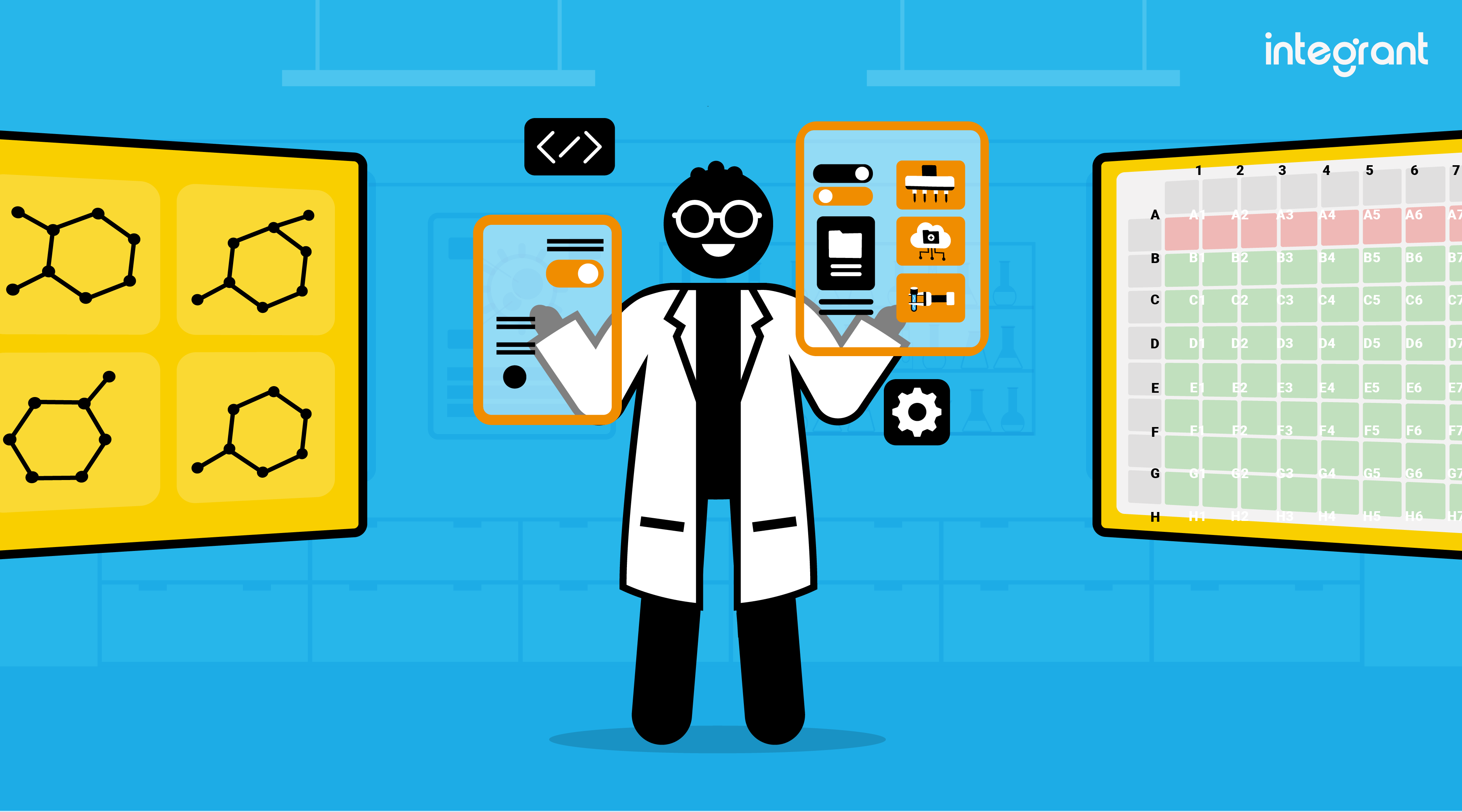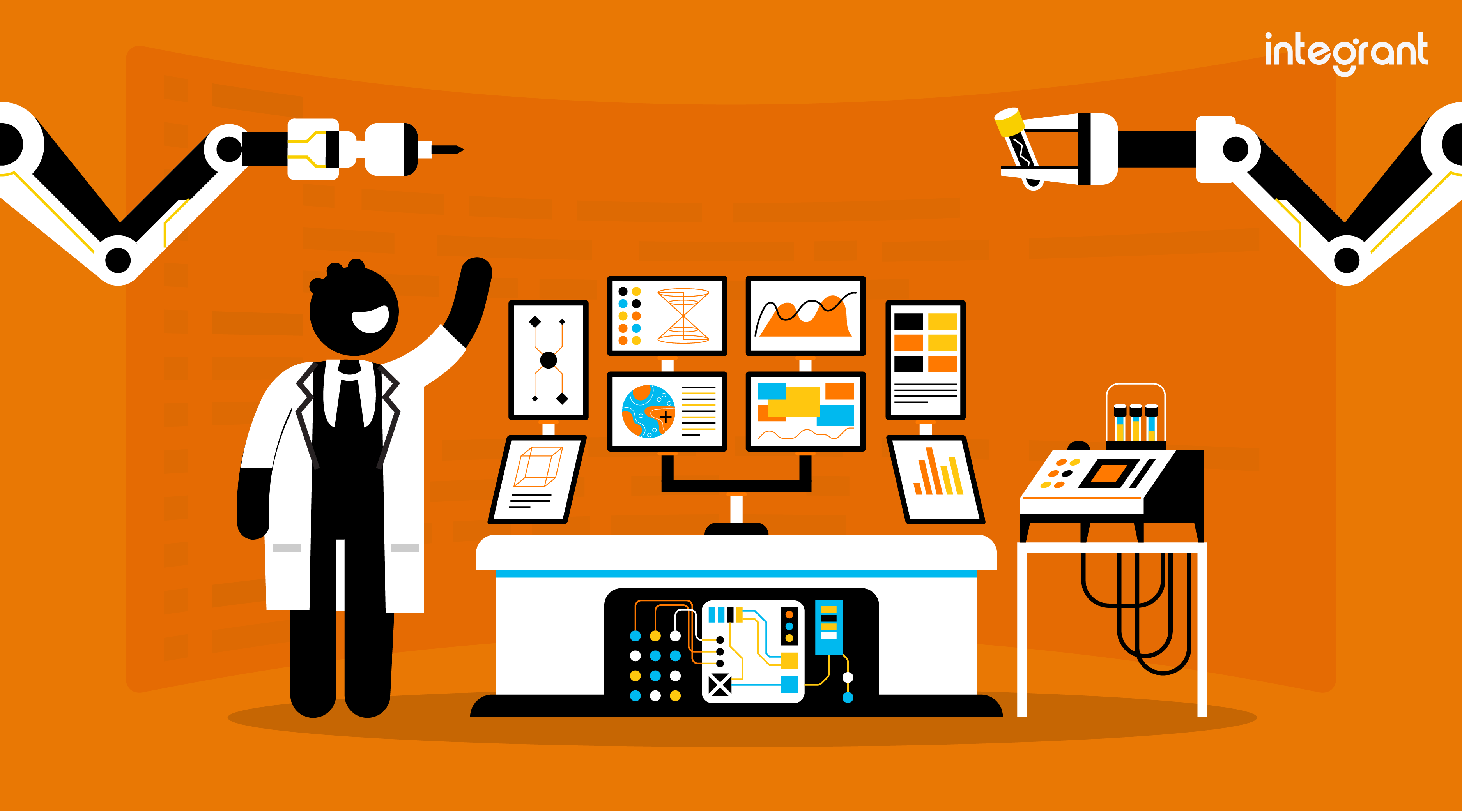Future-Proofing Biotech Labs: Addressing Emerging Data and Automated Labs Needs in the R&D Ecosystem


Navigating Biotech’s Evolving Data and Lab Automation Landscape
In the fast-paced biotech industry, automated labs play a critical role in advancing R&D labs and staying at the forefront of biotech innovation.
Labs are under increasing pressure to accelerate drug discovery, streamline laboratory operations, and integrate emerging technologies like AI and lab automation software.
According to the recent "Lab of the Future" survey by the Pistoia Alliance, 68% of labs now utilize AI/ML, with even more investments anticipated over the next two years.
However, despite these advancements, labs also encounter challenges around biotech data management, quality, and sharing frameworks, which prevent full utilization of these innovations.
As a custom software development company with over six years of experience in biotech and 15 years in regulated industries, Integrant has a unique perspective on these issues by integrating customized software solutions.
Our integrated biotech solutions meet the regulatory demands of biotech process development, ensuring labs stay adaptable and efficient.
The Growing Role of AI and Data in Biotech Labs
The Pistoia Alliance survey underscores a rising focus on AI and machine learning within labs, with many planning to expand AI capabilities in the coming years. However, barriers such as low-quality datasets and data silos remain significant, particularly for informatics and engineering teams who need reliable, accessible data to support AI-driven insights.
Integrant’s Strategy: Labs preparing for scalable AI implementations benefit from flexible data integration frameworks. For example, we developed a lab data management software module for one client, enhancing data accessibility across teams and setting the stage for future AI applications. This integrated biotech solution can help biotech companies implement scalable AI solutions while addressing data availability and privacy constraints inherent in their workflows.
Addressing Key Data Challenges with FAIR Principles
The Pistoia Alliance survey also found that nearly half of respondents cite the need for data governance frameworks to enable FAIR (Findable, Accessible, Interoperable, and Reusable) data standards. As data becomes the backbone of biotech R&D, creating structured, interoperable datasets is critical to supporting innovations in AI and machine learning.
Integrant’s Strategy: To overcome data silos and support interoperability, our data module standardizes and prepares data for future analytical and AI-driven insights. This approach allows labs to achieve FAIR principles, which supports biotech data management without requiring a complete systems overhaul. For informatics and R&D decision-makers, implementing this type of modular, FAIR-aligned strategy can improve data accessibility, enhance collaborative potential, and align with best practices in biotech data management.
Streamlining Operations with Lab Automation and Workflow Integration
Streamlining Operations with Lab Automation and Workflow Integration
Automation and robotics remain essential in reducing costs, improving lab efficiency, and enabling scientists to focus on higher-value tasks. In the survey, 76% of respondents highlighted R&D efficiency as a primary benefit of lab automation, and nearly 50% pointed to accelerated innovation as another key advantage.
Integrant’s Strategy: Our modular lab automation solutions—featuring capabilities in worklist generation, scheduling, and monitoring—are designed to adapt to lab-specific workflows. For engineering and technical decision-makers, adopting modular automation provides a tailored approach to reduce errors, enhance data reliability, and speed up time to insight, all without disrupting existing workflows. For example, our scheduling modules can reduce bottlenecks in compound management, leading to more streamlined processes that can keep up with the demands of high-throughput research environments.

Building Collaborative, Flexible Environments
A key theme from the survey is the need for greater collaboration and data-sharing frameworks across labs. For R&D and informatics teams, fostering this level of connectivity is essential for agility and responsiveness to changing project demands.
With 46% of respondents calling for standardization templates and nearly half needing best practice guides, it’s clear that flexible, interoperable solutions are becoming a necessity.
Integrant’s Strategy: Our integrated biotech solutions facilitate seamless data sharing and integration with third-party tools, enabling R&D and technical teams to access and share data more efficiently.
This approach to interoperability supports cross-functional collaboration, empowering labs to streamline access to critical research information and make timely data-driven decisions.
By implementing modular tools that support flexible integration, labs can enhance collaboration and ensure data is available where and when it’s needed.
Moving Biotech Labs Toward the Future
With evolving data complexities and technological advancements, the future of biotech labs will depend on adaptable, secure, and integrated digital frameworks.
Integrant is dedicated to supporting labs with biotech solutions that embrace AI, automation, and seamless integration with existing lab systems and third-party tools, all while addressing foundational data challenges.
With the right technology, labs can enhance operational efficiency, streamline collaboration, and maintain a competitive edge in scientific discovery and biotech innovation.

Curious About Custom Solutions and Modular Tools That Fit Your Lab’s Unique Needs?
Whether you’re exploring lab automation, AI, or enhanced data integration, Integrant’s modular solutions can help you find the right balance between custom-built tools and off-the-shelf options.
Reach out to discover how our expertise in biotech can support your lab’s goals for greater efficiency and collaboration.